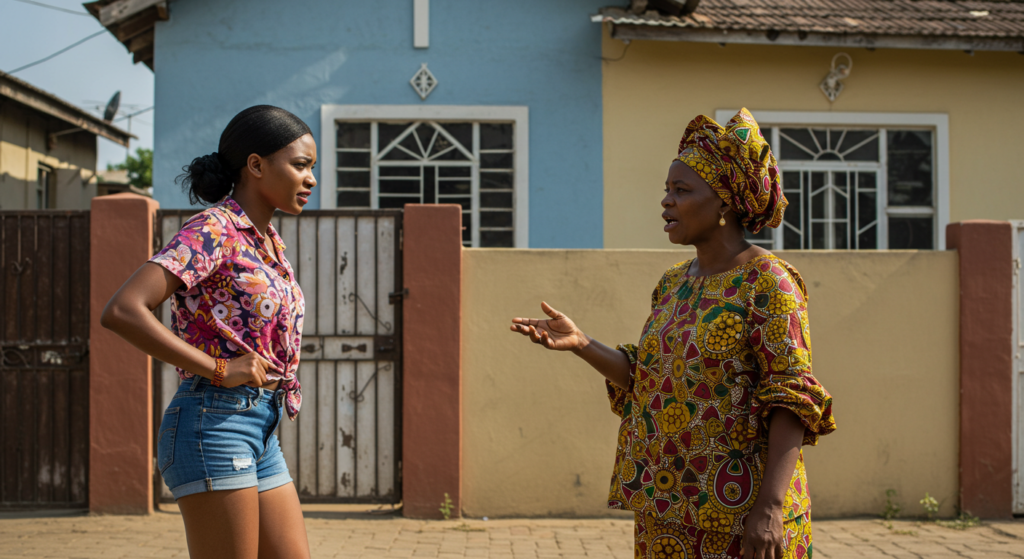Over the weekend, social media buzzed with hot takes following the Wigwe family drama. During the late businessman’s one-year memorial, his sibling granted an interview accusing his friends of conspiring with his daughter to betray their family in an ongoing property tussle. Nigerians quickly condemned the woman’s remarks, and many shared their own experiences of family members trying to assert control over inheritance after a parent’s passing.
The online discourse led me to *Derin (51), who has found herself in a similar battle. In this story, she shares how she and her siblings have had to fight off an aunt determined to claim what isn’t hers.

As told to Adeyinka
My father, *Mr Adepoju, died in 2015, leaving behind a legacy of hard work, resilience, and, unfortunately, a family dispute that refuses to end.
He was the firstborn of three siblings and spent most of his career working with the government. By his mid 50s, he was earning well and had secured a comfortable life for himself, his wife, and his children. At the time, my grandmother, his mother, owned a piece of land in an underdeveloped area in the outskirts of Lagos. She had started building on it but couldn’t complete the project because she fell on hard times. Seeing her struggles, my father tried to convince his two younger sisters to contribute so they could complete the house before she passed away. But they refused.
They saw no reason to invest in a property located in an area that, at the time, had little to no prospects. The late ‘90s in Nigeria were uncertain, and land development was slow. “What’s the point?” they would say, dismissing my father’s insistence. “Even our mum herself isn’t pushing for it.”
But my father couldn’t sit back and watch his mother’s dream rot away. He took over the project and completed the house on his own, using his hard-earned money. He did everything — roofing, plumbing, electrical work, and furnishing — without a kobo from his sisters. Sadly, my grandmother passed away before she could see the finished house.
With no one to live in it, my father rented it out and managed the property, collecting the rent ever since. None of his sisters objected. In fact, they showed no interest in the house for decades. To them, it was just one of my father’s many responsibilities.
That is, until he died.
After my father’s passing in 2015, my siblings and I took possession of all his property documents, including those for the house he built for his mother. At first, we didn’t think anything of it. To us, it was simple: our father completed the house, managed it, and had been the sole recipient of its rent for years. Naturally, it was his.
“I know people say they don’t fear death, but I do, and writing a will makes me think of death.”
In this article, young Nigerian men share how they feel about writing wills.
But suddenly, his sisters — who had never once shown interest in the house — demanded the documents. They argued that no matter who built it, the land originally belonged to their mother, and since she never officially willed it to anyone, it should return to her direct children, meaning them. They didn’t care that my father was the only one who spent money on it. “You are grandchildren,” they said. “This is not your fight.”
It was a painful betrayal. These were women who had ignored my father’s pleas for help. Now, they felt entitled to reap from what they never sowed.
The dispute went on for months. Extended family members took sides, and the arguments became increasingly bitter. My siblings and I wanted to fight back. My father had invested too much into that house for us to just hand it over.
But then we considered the toll it was taking on the family: the hostility, the constant accusations, and the pressure from relatives who said, “Just let it go. It’s not worth the bad blood.” Even our mum had resigned all hope and encouraged us to hand the documents over.
So, after much deliberation, we reached a compromise. We handed over the house documents to our father’s sisters, but only on the condition that they would still share the rent with us. They agreed, or at least, they pretended to.
Now, we receive a portion of the rent, but we all know that arrangement is fragile. My father’s sisters are already in their early 70s. When they pass, what will happen next?
Here’s the problem: my father’s sisters have children of their own. And unlike my siblings and me, their children played no role in maintaining or managing that house. Will they honour the agreement their mothers made with us? Or will they claim full ownership, cutting us out entirely?
And then there’s the biggest question of all — what happens to the house itself? My grandmother never wrote a will, and my father, trusting that the house was essentially his, never wrote one either. Now, his sisters are in possession of the documents, and we have no legal claim.
Will the house be passed down fairly? Or will it be lost in another cycle of family disputes, swallowed by new generations who have no regard for the sacrifices my father made? We don’t know.
For now, we just watch and wait.
If you don’t want your family fighting over property when you’re gone, here’s a useful article on what you should know about writing a will in Nigeria.
READ THIS NEXT: My Mum Has Everything, But She’s Still The Greediest Person I’ve Ever Known




